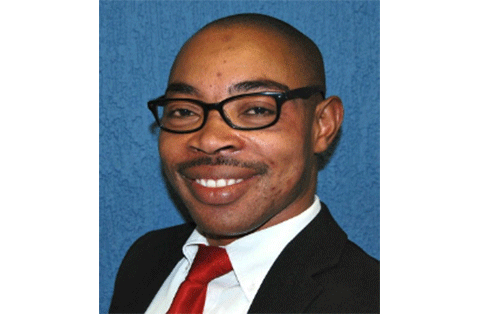As an independent economic and business researcher, a board member of the African Council on Foreign Relations, a Pan-African think tank on economic affairs and a Namibian, let me start by wishing Namibians a peaceful election on 27 November when they will exercise their democratic rights.
In a democracy, the redistribution of political power during national elections has a major impact on a country’s political and economic journey. It is important to recognise that currency values can be impacted by political unpredictability.
We can gain a better understanding of how political unpredictability can either cause or exacerbate economic issues by using a variety of economic models. In actuality, market volatility is usually much higher during election and political transition periods. Thus, free and fair elections are important for maintaining economic stability because they foster an environment that stimulates investment and growth. A government elected through a legitimate process is more likely to be regarded as reliable and capable of handling the economy well. Long-term economic prosperity requires a climate of predictability and stability. The dependence of Namibia’s economy on South Africa, and the fact that South Africa will not tolerate economic instability due to the possibility of market instability, must be recognised.
For economic reasons, South Africa may cut off its relations with Namibia. The possibility that it could result in economic distortions like currency overvaluation or undervaluation is one of the main worries. Some industries may become less competitive, which could lead to trade imbalances.
The political and economic future of Namibia would be greatly impacted if political parties did not publicly pledge to operate peacefully and encourage followers to refrain from using violence and divisive discourse. It will be critical for political parties to remain alert and adaptable throughout this time.
Certain events, such as changes to laws and regulations, should be anticipated by international investors and domestic businesses.
If Namibia stays proactive and savvy, it may be able to handle the dangers better, and seize the opportunities that could arise from this significant election.
The present strategy used by investors is to observe and wait.
This reluctance results from the requirement to follow the policy roadmap before committing capital.
Investor enthusiasm can be dampened by political or economic volatility as they look for stability and alluring rewards.
The cautious approach of an investor reflects their need for assurance that their investments will be secure and profitable.
Furthermore, the parties need to agree on the best course of action to guarantee the security of Namibia’s economy. The risk can potentially depress the Namibian dollar and erode corporate confidence. Therefore, a developed democracy, where political parties accept election results without using violence or legal action, is essential.
We hope Namibia develops into a mature democracy.
We want Namibia to set the standard. Peace will be impacted by any setback because Namibia is known as the most peaceful nation.
I must caution that this year’s elections will not be simple.
Namibia’s post-election political environment is expected to be characterised by threats, false information, economic volatility and personal assaults as shown by investors’ wary approach and the deceleration in the capital market.
I also do not think there will be a coalition government because the opposition parties are operating in silos. None of them will give up their ambitions because everyone wants to be president.
I humbly believe that Namibian leaders, whether they are working together or alone, should prioritise the needs of the nation over their own. Everyone wanting to be president is Africa’s problem.
This mindset will create fiscal difficulties, put more strain on taxpayers and possibly result in the government taking on more debt because the leaders will be spending more time discussing pointless matters than proposing solutions that will boost economic growth, exports and lower imports. Therefore, the business community and civil society organisations will be crucial in maintaining stability and supporting the country’s economy during these uncertain times.
Finding common ground and reducing tensions can, therefore, be facilitated by promoting communication among political opposition groups. Maintaining investor confidence can be achieved through open communication, providing stability assurances, and protecting their property rights.
As additional strategies to attract investment, governments may consider creating infrastructure or passing new legislation.
By implementing these strategies, Namibia can uphold democracy, handle pre- and post-election tensions, and keep investors’ trust.
This will contribute to stability and prosperity for all of its citizens.
Moreover, Namibia has a more developed and liquid foreign exchange market, which is a significant component of its economy. This is bolstered by N$73 billion in foreign direct investments (FDI) between 2021 and 2023, of which 45% came from the oil and gas sector.
The fact that Namibia is currently listed among the top 15 oil-rich countries in the world is evidence of its rapidly expanding influence in the energy sector.
Namibia›s economy, though still too small, can grow only from this point on if our political parties agree with the election results.
Peace will protect our economy, and bring about political stability.
Economic fluctuations and investment hesitancy can impact ordinary people, necessitating comprehensive solutions that tackle both macroeconomic and domestic issues. There is a strong resonance for a stable and developed democracy in Namibia.
A stable Namibia is expected to open the door for more foreign investment, which will eventually benefit Namibians.
This is as investors continue to keep an eye on the country’s political and economic climate.
Namibia can therefore realise its full potential, and create a future in which every citizen has a voice, an opportunity to participate and a stake in the success of the country by making peaceful elections a priority.
The pursuit of this goal will necessitate persistent dedication, mutual commitment and steadfast faith in the ability of the people to direct their course.
*Josef Kefa Sheehama is an independent economics and business analyst.


